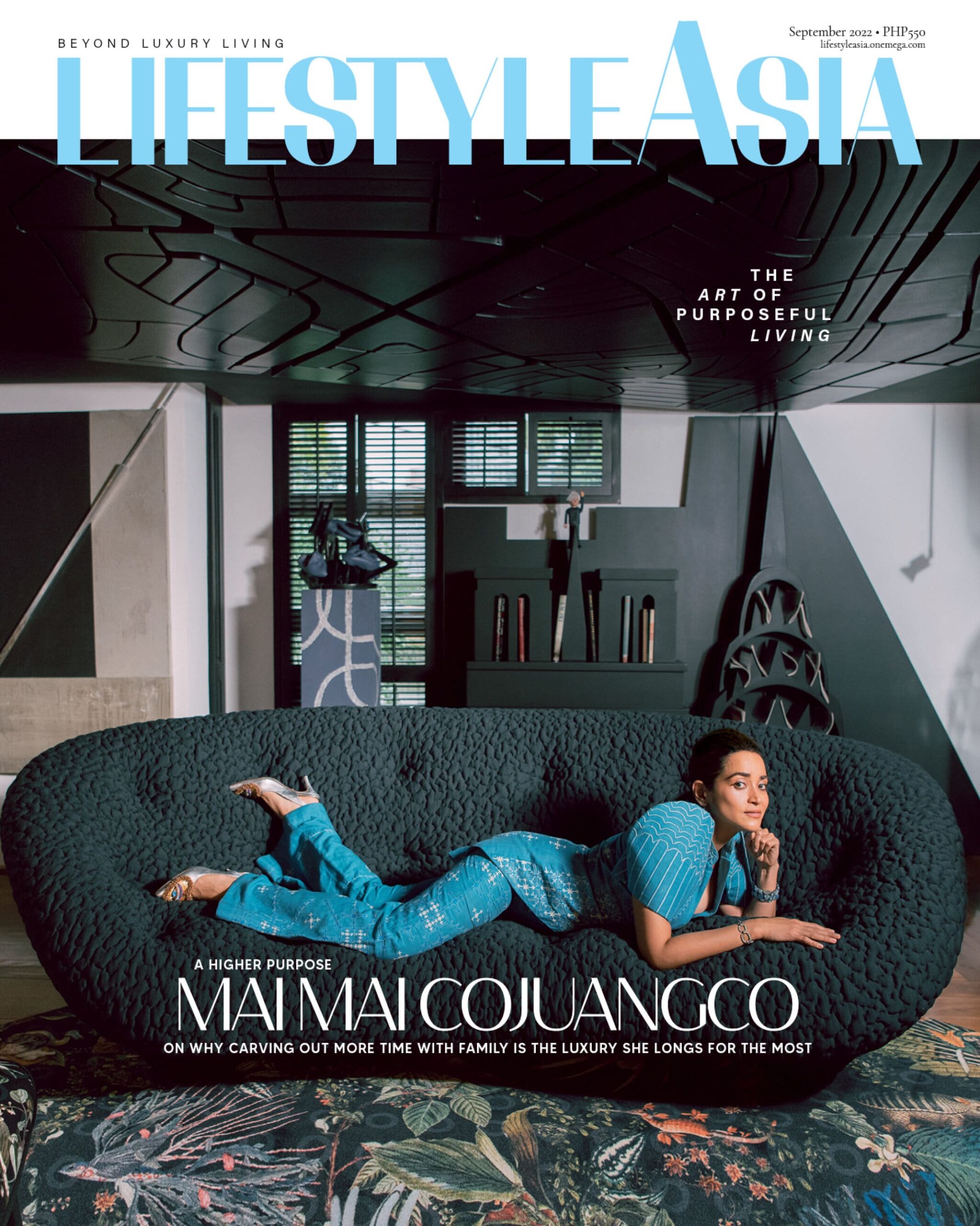Based in Florence as a mother, business owner, and designer, Cojuangco is raising her daughter and innovating her brand while remaining steadfast on her Filipino roots.
“I was always creative. At a very young age, I drew and painted a lot, creating my imaginary worlds,” Mai Mai Cojuangco tells Lifestyle Asia. In her childhood, the designer opted to sit behind her desk and draw instead of playing games and running around as most kids would.
However, the founder of the Italy-based luxury bag brand, Demetria, didn’t always know her path would lead her to design. “I wanted to play in a band, be a marine biologist, and study abroad,” she shares. Fashion was more of a passion and something fun when I was younger, but I wasn’t an eight-year-old that said, ‘I want to be a fashion designer when I grow up.'”
READ ALSO: On The Cusp: Kevin Kreider On Reinventing Asian Perceptions And Building An Empire In His Own Terms
But the daughter of political, philanthropist, Philippine style icon, and one of Harper’s Bazaar’s 100 Most Beautiful Women in the World, Tingting, did become keen on learning about fashion and the arts. With her determination to study abroad, she entered a two-year course at fashion school Polimoda in Florence—where Cojuangco is based, after graduating college.
The program focused on garment-making and knitwear, with a few lessons on creating shoes and accessories. “That’s when I decided that specializing in handbags was for me,” the creative director shares. After completing the course, Cojuangco’s former husband, Italian entrepreneur Andrea Zini, whose family is the licensee of the fashion label Benetton, suggested another program in Scandicci. This course focused on handbag making and leather, “I jumped at the opportunity immediately. From that point onwards, I focused on learning that craft.”
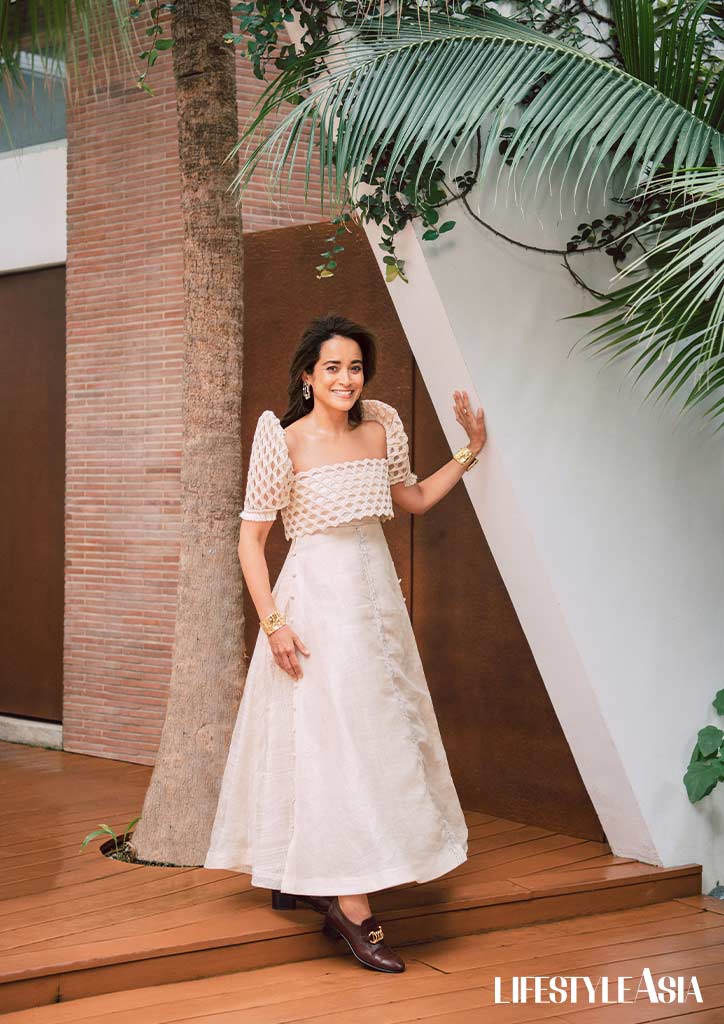
While running an established brand that merges function and timelessness, Cojuangco admits that her design process is a lengthy one. However, every creation is birthed from research, her experiences, and her observations on what’s lacking in the market.
Experience to inspiration
“In other words, what features would I like to have in a bag that I can’t find today,” she explains. “For one, I wanted a bag that would be cool left open or closed; you know how Celine and Hermes do that, but then that becomes somewhat impractical when you’re traveling or moving around.”
She recalls a time when she was using one of the mentioned bag styles on a flight back to Manila, as her dear uncle passed away. “I stored the bag in the overhead bin and realized too late that I had lost my phone there. I was so truly upset as that was where I had messages stored from that (aforementioned) uncle, and we had written to each other only two days before his passing.”
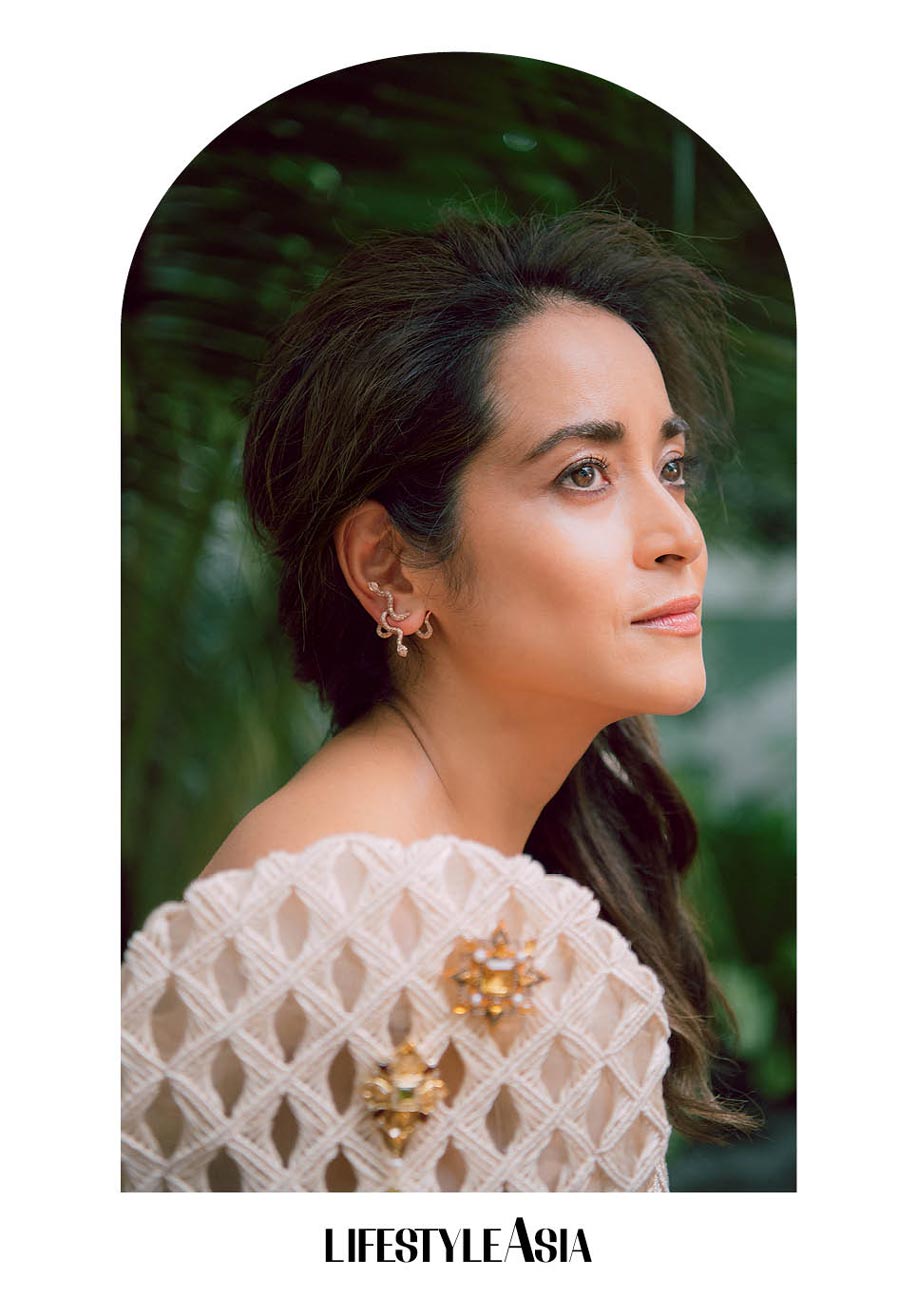
As a result, Cojuangco created a piece titled SEMPRE, which translates to “always.” She aimed to make it usable, whether for work or travel, that can store everything from your extended makeup kit to your laptop. This led to the creation of The Demi (which is, like all Demetria pieces, exclusively constructed by artisans) when Cojuangco was fed up with evening bags that couldn’t fit more than your iPhone.
“Inside the rigid opening are two metal brass frames covered in leather that click together,” she describes. “This kind of bag construction would be impossible to produce on a mass quantity scale.”
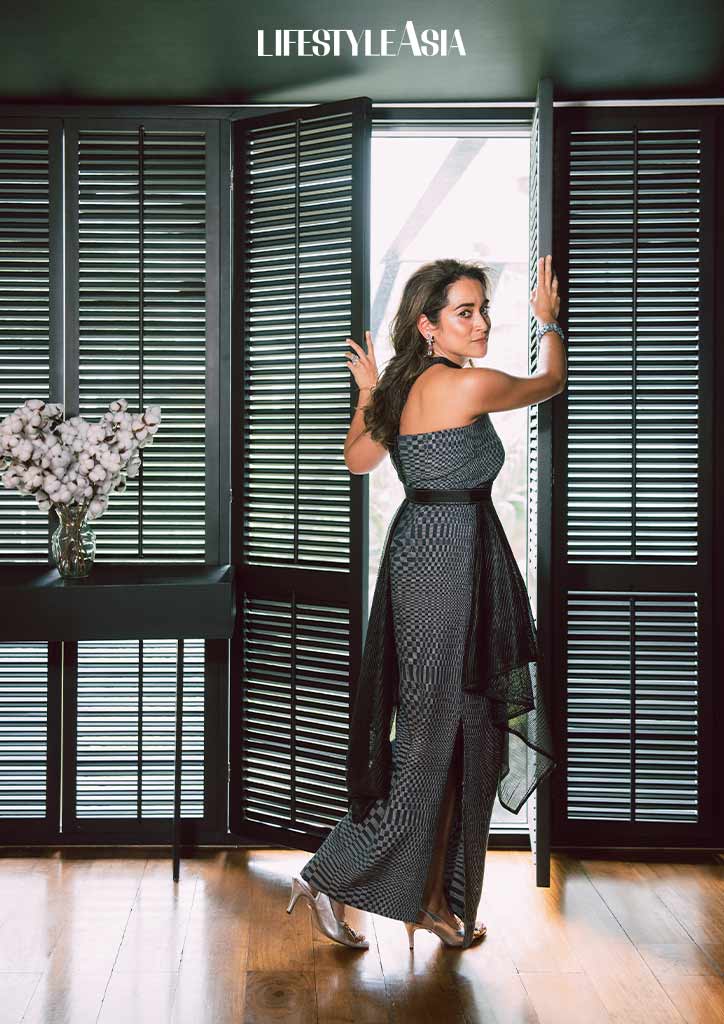
Demetria specializes in using leather materials with various textures and levels of thickness. For custom pieces, the studio can create crocodile-skin bags. “As with everything, things are slowly evolving in the industry, so we are keeping track of newer options like the usage of mushroom leather,” Cojuangco expounds.
“For the first time, in this collection with [Len Cabili’s] Filip+Inna, we worked with very thick and durable woven fabrics from Italy that the Tausug and Mangyan women embroidered. Upon completion, these fabric panels were then treated and made into bags by the Florentine women.” In addition, the collaboration birthed a set of beaded straps by the T’boli tribal group. The straps were incorporated with leather and metal rivets for the collection.
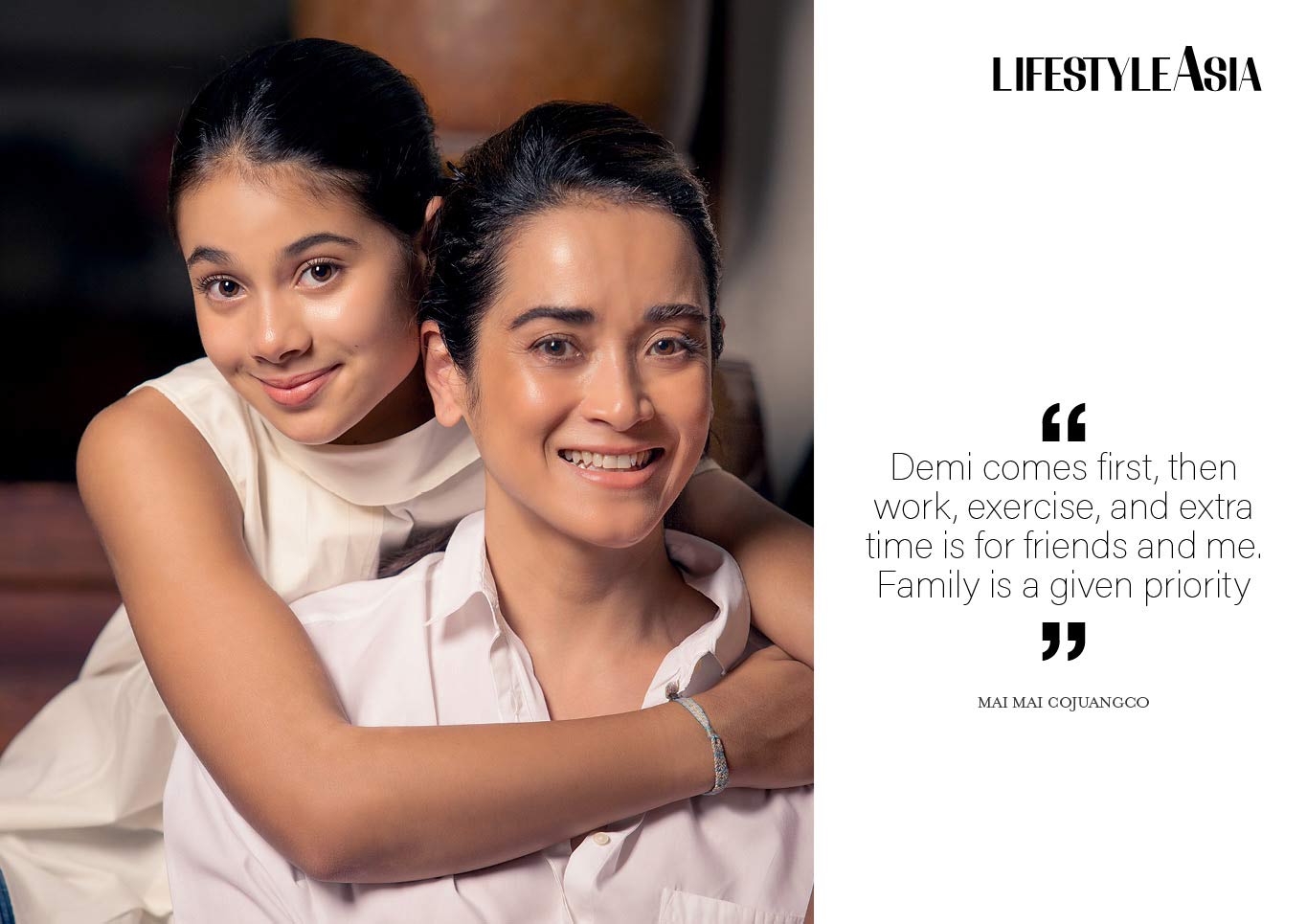
Injecting heritage
Partnering with Filip+Inna is one way Cojuangco injects her Filipino heritage with her global brand. “The Philippines will always be home to me, and I am continuously exploring how to bridge both worlds—where I live and where home is,” she says.
Her personal style reflects in her brand, which is named after herself (Margarita Demetria), her grandmother, and daughter. Cojuangco, shares that she doesn’t follow trends. “There was no doubt that I would come up with things leaning towards ‘classic,’ meaning, a design that would never be recognized as something that was five years ago or defined by a time or trend,” she adds. “I’d rather have one beautiful bag that will last me a lifetime rather than ten that I can live without.”
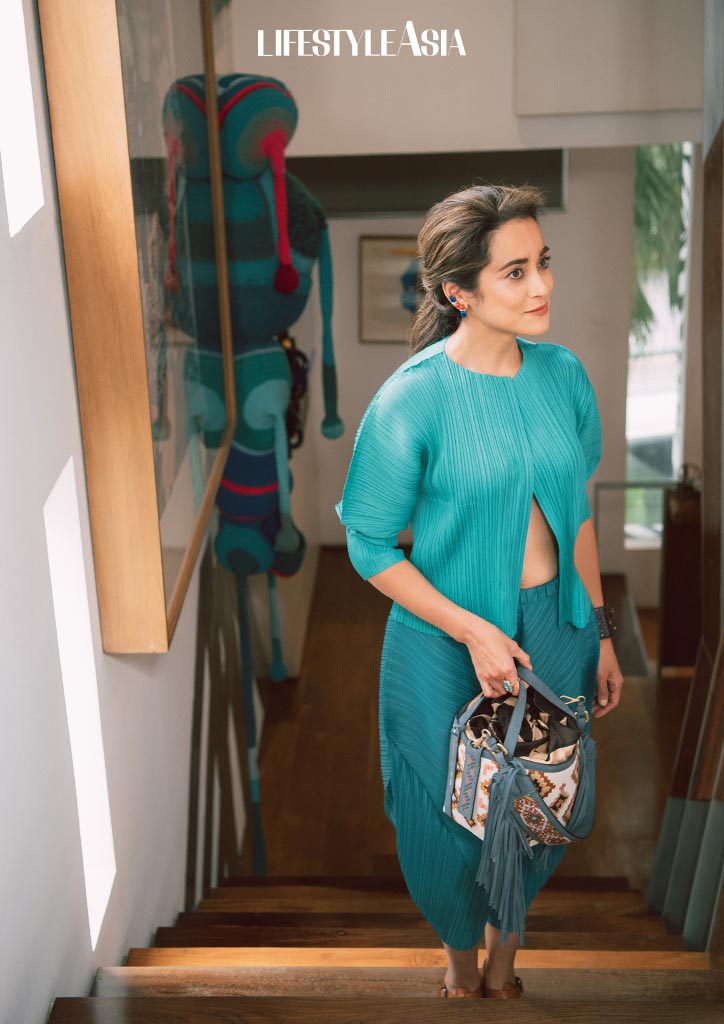
Cojuangco’s designer status goes beyond bags and into graphic design. When she was 17, Zini, the father of her daughter Demi, requested her to create artwork to be digitized for embroidery machines. “From that point, I hired my teacher, and learning took off from there for graphics design—around 28 years ago—and I have not stopped since,” the mother of one shared.
Cojuangco’s lifestyle consists of her balancing life as a business owner, designer, and, first and foremost, a mother. When asked how she juggles it all, she says it’s all about setting firm priorities, even if it comes to sacrificing her social life. “In my context, it’s all about choices on where to dedicate and allot my time. It’s true that Demi is 13, but I am not less busy than I was before, “she shares.
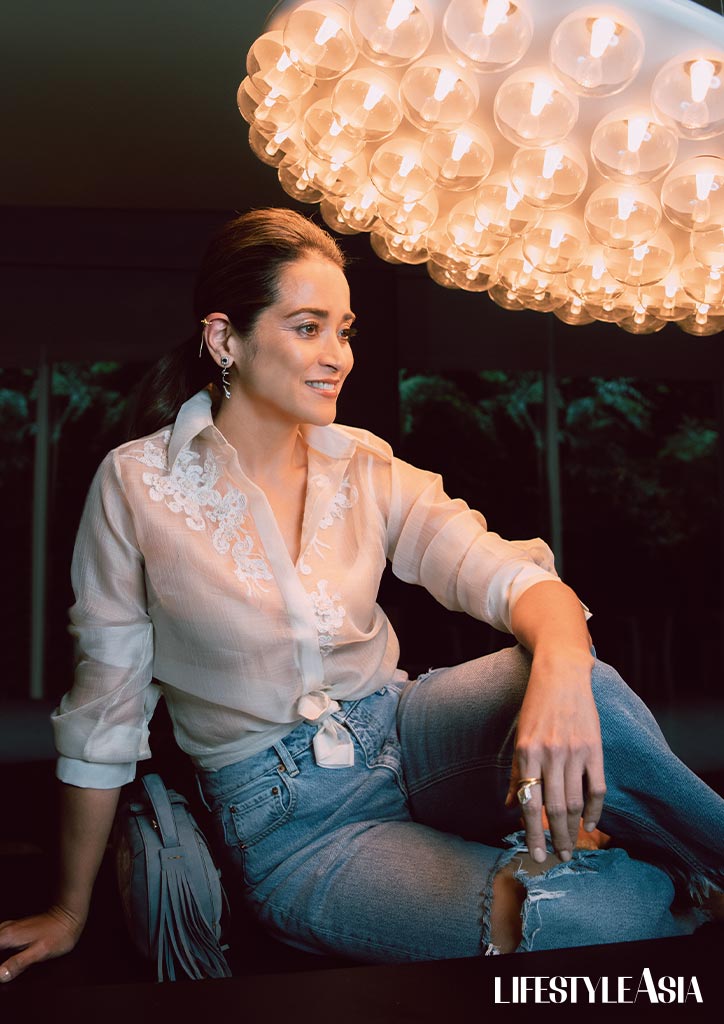
“It’s terribly time and energy consuming to build a business, and so I choose. Demi comes first, then work, exercise, and extra time is for friends and me (unless they need me urgently, of course). Family is a given as a priority, but of course, they are away, so it’s different.”
Defining luxury
Being away from her loved ones in the Philippines taught Cojuangco coping techniques during difficult times. After all, when she was based in Manila, she’d see her more than twenty family members (immediate and extended) every Sunday. From learning about meditation to joining Lightworkers of Florence, a group where members are taught how to deal with their thoughts and energies, she found herself in a healthier place. Additionally, movement and music played pivotal roles in her holistic wellness.
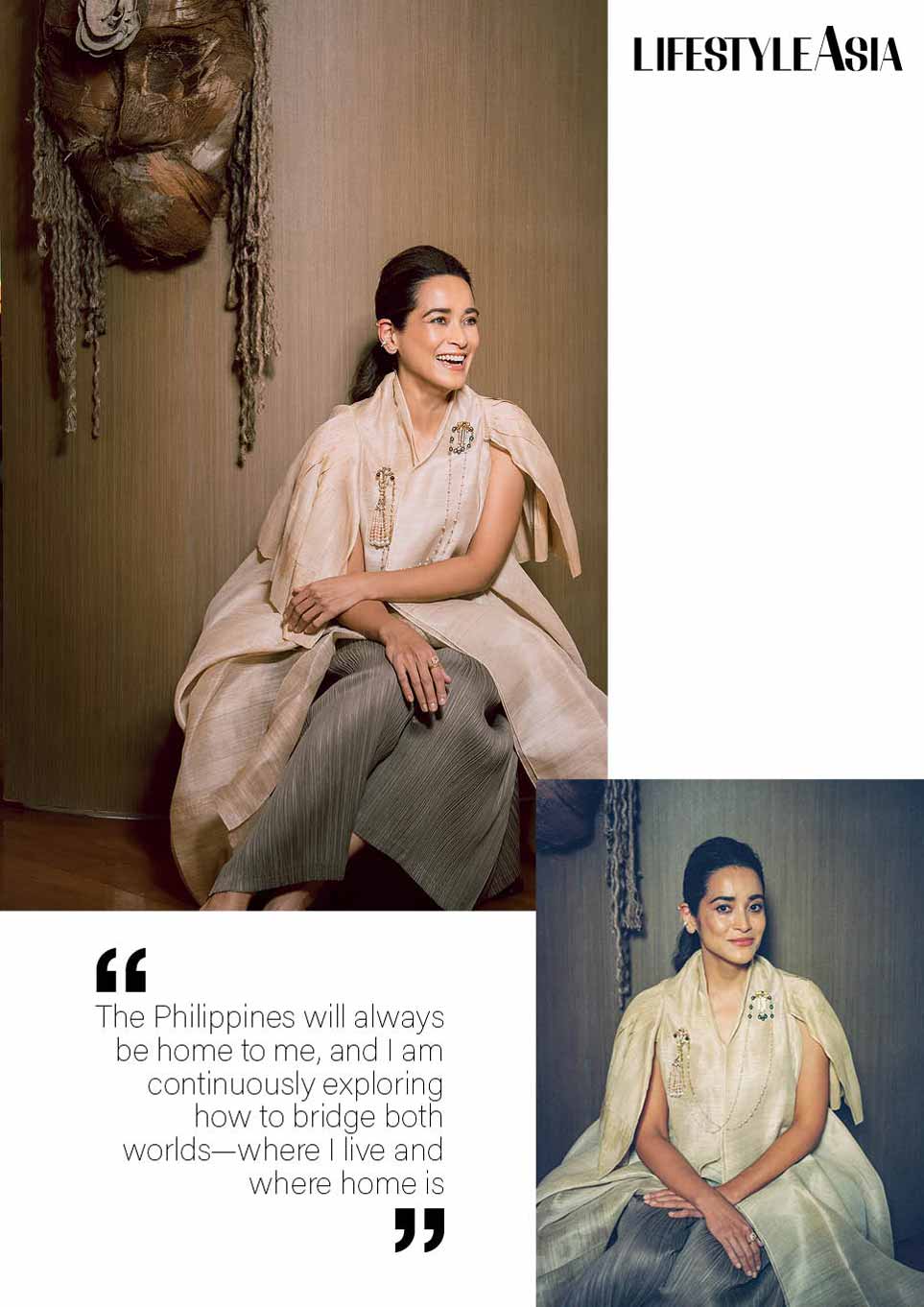
“I remember how much I ran during the super tough times, which was very therapeutic,” she recalls. “Playing the guitar is very soothing, and it also calms my mind. Getting things done and accomplishing has always been some sort of drug and cure for me. That’s why I’m always doing things too.”
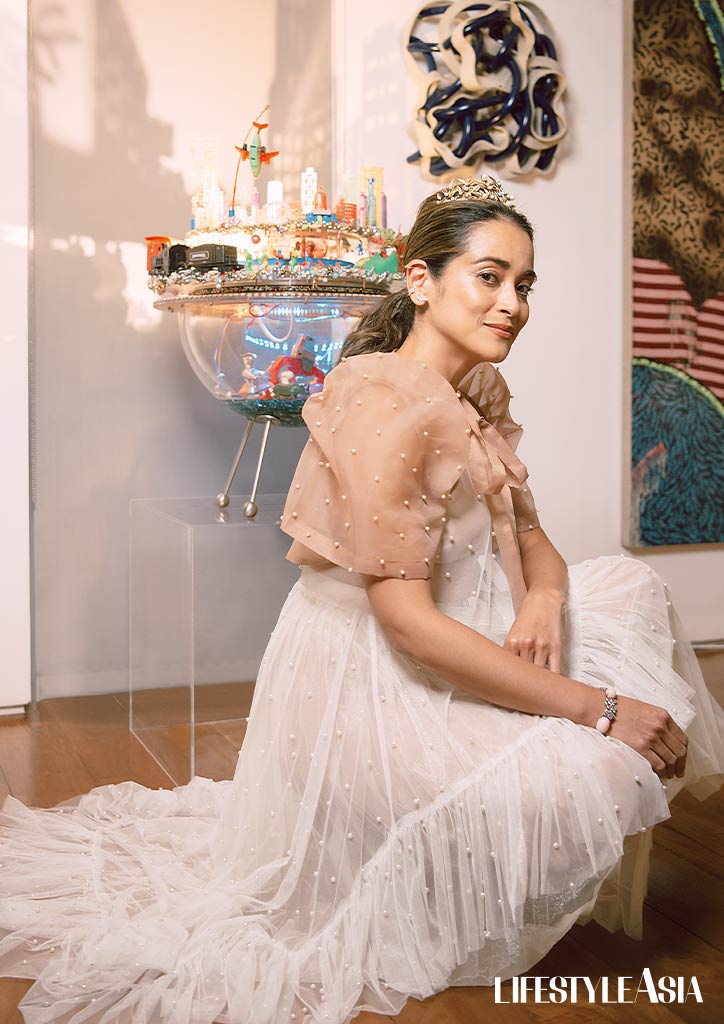
As a hands-on mother, Cojuangco has a routine of preparing Demi’s lunch every morning, bringing and picking her up from school, and accompanying her to sports and music classes in the afternoons. “She’s an only child while I have four sisters, [Mikee, China, Pin, and Lia], who were always by my side, and living in Manila, of course, has its comforts, so it is quite different,” she says on the difference of Demi’s upbringing compared to her own.
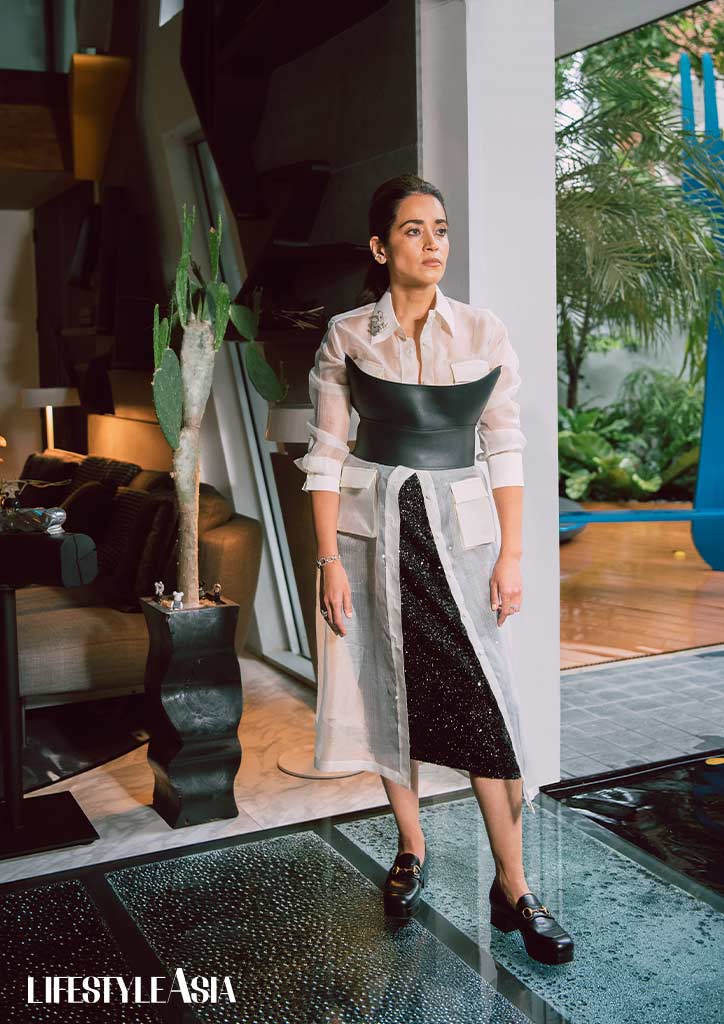
With how the founder juggles her time, it’s no surprise that she defines luxury as time. “In the most general sense having the time to do everything you want is a real luxury that I would love,” Cojuangco muses. “More time.”
Photographer AYA CABAUATAN, assisted by ADONIS DELA PENA
Sittings Editor CANDY DIZON
Creative Director PAOLO TORIO
Art Director MARC YELLOW
Stylist ROKO ARCEO
Makeup PAM ROBES
Hair MARK FLORETA
Shoot Coordination MAE TALAID, ERICA LUNA, AND MJ ALMERO
